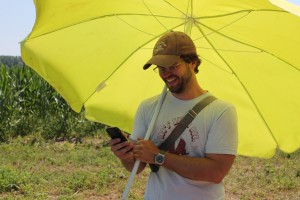The emergence of multi-village political hierarchies out of autonomous village societies was a critical transition in human prehistory. I study this transition and the processes by which egalitarian tribal groups transform into societies with hereditary rank, tribute mobilization, and other social inequalities. Such transformations were common in Europe during the Bronze Age (2700 – 750 calBC), when a plethora of societies were connected through trade, travel, and migration. Over the past several decades, Bronze Age Europe has become an increasingly important region of study for understanding the formation of complex societies. My research focuses on Bronze Age societies of the Great Hungarian Plain, a central trade axis in prehistory.
For the Bronze Age Körös Archaeological Project (BAKOTA) homepage, click here. For our Facebook page, click here.

